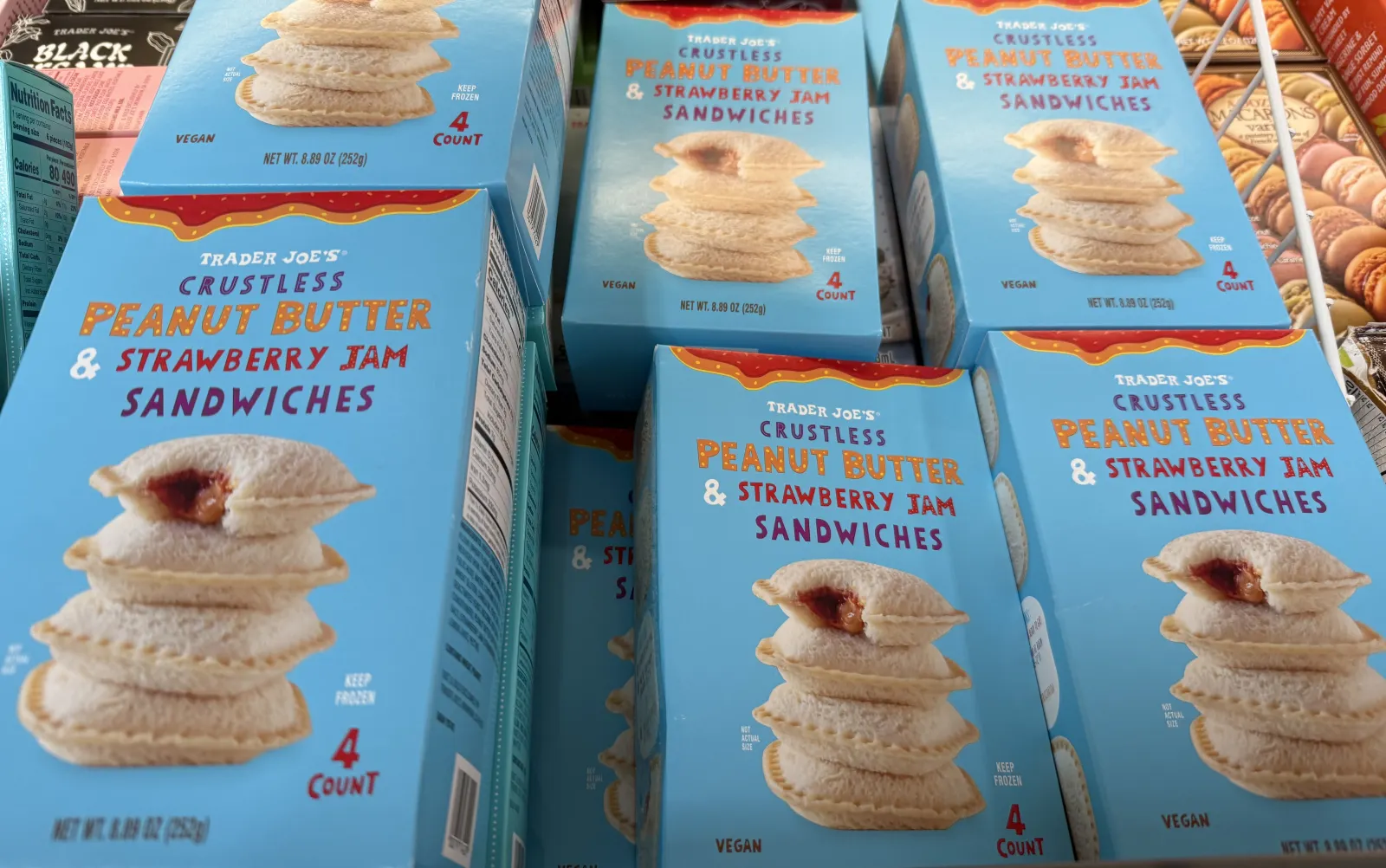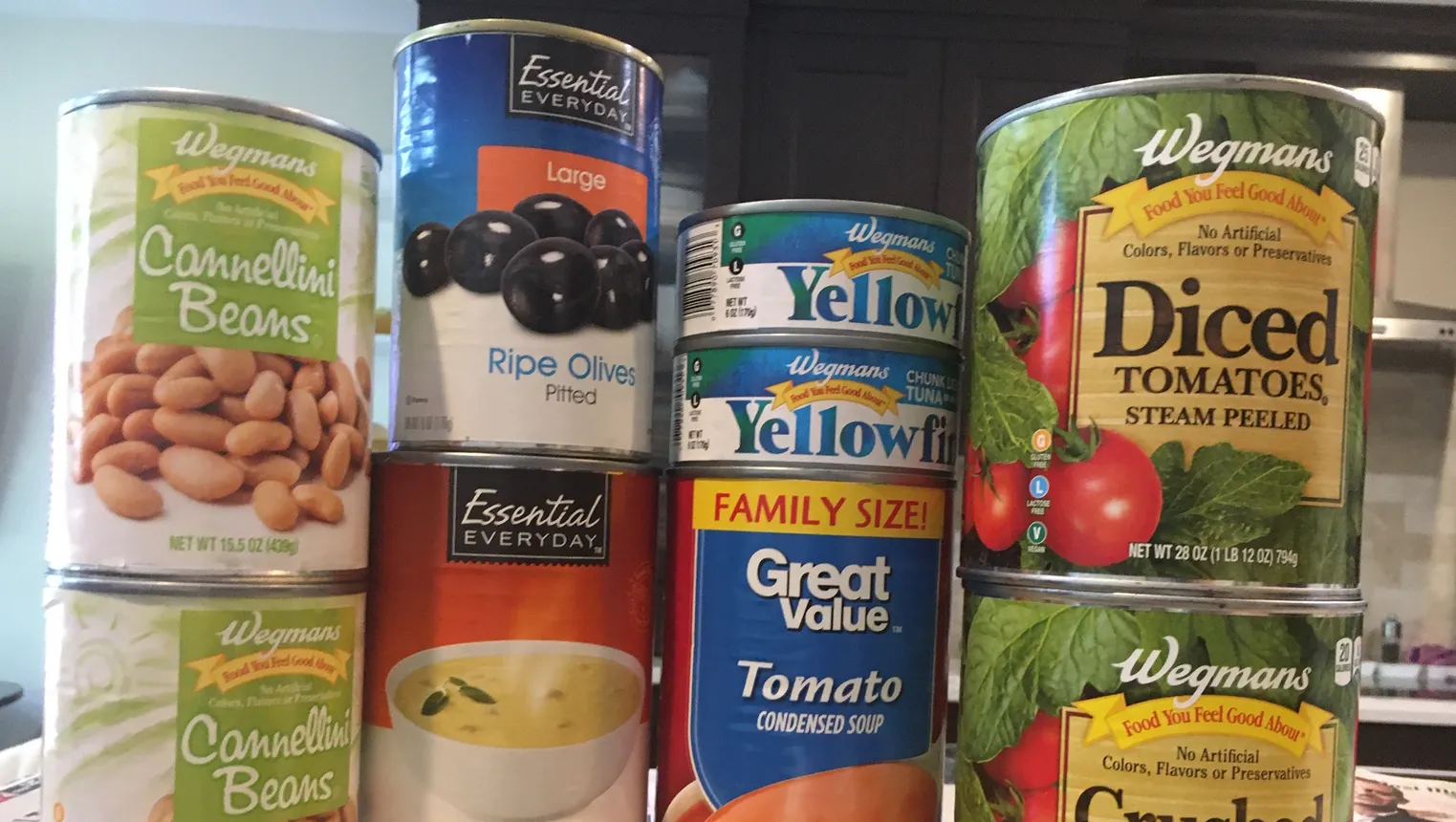As food manufacturers look for opportunities to combat the rise of private label offerings, more CPG manufacturers are expected to sue retailers they claim are making copycat products.
Earlier this month, J.M. Smucker sued Trader Joe’s, alleging the grocery chain’s version of crustless PB&J sandwiches is an “obvious copycat” of its Uncrustables frozen sandwiches. The lawsuit came five months after Mondelēz International sued Aldi, alleging the grocer’s snack offerings replicate the packaging of Oreos, Chips Ahoy! and five other brands.
“What the national brands are doing is just throwing down a gauntlet and saying, ‘Look, you guys can’t just get away with imitating our product,’” said Neil Saunders, managing director with Global Data. “There probably will be more skirmishes because the market is becoming more competitive.”
Once viewed as inferior knock-offs to branded offerings, private label products have evolved into formidable competitors that are now available at small mom-and-pop stores as well as retail giants such as Walmart and Costco. Today, shoppers can find them in nearly every aisle of the store, from canned vegetables and ice cream to meat and yogurt.
Private label is forecast to command more than a fifth of food and grocery sales in 2025, according to information from GlobalData, up from 12% two decades ago. Circana noted that in 2024 alone, sales surged to a record $271 billion, rising 3.9% from the prior year compared to a 1% rise among national brands.
The sector’s growth is a result of retailers spending more to increase the quality, taste and value of the products. Recently, inflation has prompted consumers to pull back on spending, making private-label products a more attractive cost-saving option.

Optional Caption
Christopher Doering/Food Dive
‘A game of cat and mouse’
For discount chains that typically shy away from selling name-brand items, the ability to tap into product attributes tied to a popular item, such as an Oreo cookie or Uncrustables sandwich, can prove incredibly valuable in getting a consumer to purchase their store’s offering instead.
When private label gets too close to the branded product, food manufacturers fighting to maintain or grow market share are proving more willing to fight back.
“It’s always been sort of a game of cat and mouse, where [some private label retailers] try to get as close as they can,” said Mark Simpson, a partner at Saul Ewing who has worked on intellectual property for nearly four decades.
What the Smucker and Mondelēz lawsuits have in common is that they sued retailers that primarily stock private-label products. Food manufacturers are far more reliant on bigger retailers, such as Walmart, Kroger and Albertsons, for their sales. There is less of an incentive to sue them due to fear of damaging the long-term relationship and the possibility that the retailer will pull products from shelves in retaliation.
While Aldi and Trader Joe’s are among the fastest-growing retailers, they are not a major source of revenue for major food manufacturers.
“It’s a lesson that this kind of business model is going to be more susceptible to lawsuits, even if the lawsuits have a questionable basis,” said Robert Brauneis, a professor and co-director of the Intellectual Property Program at The George Washington University Law School.
“What the national brands are doing is just throwing down a gauntlet and saying, ‘Look, you guys can’t just get away with imitating our product’ “

Neil Saunders
Managing Director, Global Data
In their respective lawsuits, Smucker and Mondelēz repeated a similar message: Private label offerings are confusing and deceiving consumers into thinking they’re the brand name.
The companies argued that Trader Joe’s and Aldi unfairly benefited from the goodwill and investment the food manufacturers have spent over many years to build their brands. Without legal action, the copycat products could cause irreparable harm to their brands and businesses, the food giants claim.
Legal experts said in cases like these, courts will focus on whether the private label products in question lead to confusion among consumers who think they are purchasing an item that has ties to the brand name.
Lawsuits loaded with risk
Brauneis believes it’s unlikely that the Smucker case will be dismissed early on. The longer it progresses, however, the more pressure there could be on Trader Joe’s to settle.
“Smucker is going to be able to cause Trader Joe’s some pain, some litigation costs, and that may factor into their calculation. There’s not a 100% chance of winning this,” he said. “How much is it really worth to you to be selling a product that is similar to yours?”
Smucker said in the lawsuit that while it “does not take issue” with other companies selling prepackaged, frozen, thaw-and-eat crustless sandwiches, Trader Joe’s Crustless Peanut Butter Strawberry Jam Sandwiches copies Uncrustables by using a similar blue color on its packaging as well as a sandwich design that is round and crimped on the side.
A Smucker spokesperson said in an email that the company “actively monitor[s] the marketplace” to protect its brands. The company is focused “on protecting the unique trademarked design that represents the high quality associated with the Uncrustables brand and preventing consumer confusion caused by imitation.”
Meanwhile, German-based Aldi is no stranger to lawsuits regarding products sold in its stores, even before its scuffle with Mondelēz.
Marks & Spencer sued Aldi in 2021 over concerns it was copying a bug-shaped cake popular at the British retailer. The companies reached a deal a year later, and the appearance of the cake changed. Last year, an Australian court found Aldi liable for copyright infringement over packaging for a children’s snack after it used a rival brand as the basis for its design.

Optional Caption
Christopher Doering/Food Dive
Trader Joe’s and Aldi did not respond to a request for comments.
Brauneis and Saunders both noted there is inherent risk for big food brands if their lawsuits fail. A court ruling in favor of the retailers could encourage them to copy more branded products.
“If they lost the legal case, then that would be a disaster, because it would be open season for everyone else to start doing their own thing,” Saunders said. “There’s actually a lot of risk involved.”
Still, he noted that food makers have little choice but to act now to protect their brands. A failure to fight back, Saunders said, could also prove damaging, especially if other stores choose to launch their own copycat products.
”When someone bigger does it, they could refer back and say ‘Well, Trader Joe’s did it for years and you didn’t do anything about that,’” he said. “It weakens their case. If you don’t challenge things as they come along, it makes it much more difficult to enforce your intellectual property rights.”


